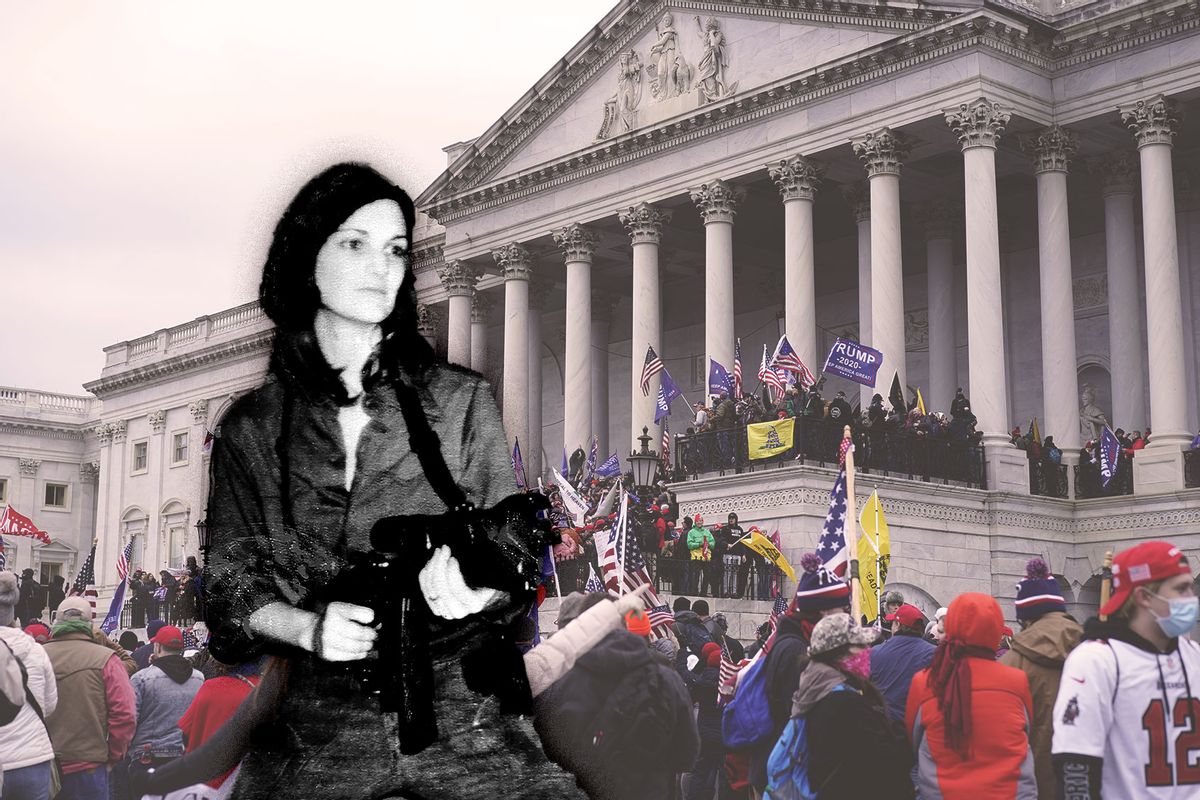Fifty years ago, a small group of left-wing radicals calling themselves the Symbionese Liberation Army broke into a Berkeley apartment and kidnapped 19-year-old Patricia Hearst, shocking the nation and even the world. Hearst, an heiress to a media empire, dominated headlines in ways rarely seen even in this internet era.
The media’s incessant focus on the telegenic, famous young woman makes it easy to forget those who willingly joined the SLA and why they did. The SLA’s saga is a reminder of how politics and social disorder can prompt otherwise ordinary people into embracing violent actions. As we enter what is sure to be another contentious election year, it’s impossible to know who will be the next to feel pushed over the edge.
Take Camilla Hall, for example. Hall was one of six SLA members killed by Los Angeles police in a shootout on May 17, 1974. She had never owned a gun until earlier that year, after committing herself to the revolution.
Camilla was an unlikely candidate to support extremism. She grew up in Minnesota, the daughter of a Lutheran pastor. Her father’s church emphasized social justice and uplifting the poor. Camilla embodied this directive. Immediately upon graduation from college, she found work at a county welfare office assisting young, unwed mothers. But after a couple of years, she grew frustrated by what she saw as corruption and red tape. She felt the bureaucracy was too big to make any lasting changes to improve people’s lives.
Add to this other frustrations of the time. Millions had marched in the 1960s to protest the Vietnam War and discrimination. By the 1970s, not much had changed. The fight for civil rights did not eradicate racial inequalities. The era of mass incarceration was just beginning, disproportionally affecting minorities. The war in Vietnam dragged on. The gap between rich and poor widened.
By the time Camilla moved to Berkeley in 1971, she easily found a community of like-minded progressives. But Camilla became connected to a small group of people who embraced a radical ideology that emphasized violence as the only path to revolution. Her own frustrations only mounted. She was let go from her job in the Oakland parks because she was a woman. And as a gay woman, Camilla deeply felt the sting of discrimination.
It’s hard to know definitively why Camilla decided to go to extremes; her reasons died with her in the shootout. But at some point in late 1973, Camilla crossed a line. In her mind, violence became the only option for change.
In early 2021, I was putting the finishing touches on my biography of Camilla Hall, preparing the manuscript to send to publishers. The days that had birthed the SLA seemed so long ago, a bizarre chapter in history that had now ended. But then, I watched the January 6 Capitol insurrection on television. I closely followed the aftermath and was particularly struck by Rachel Powell, one of the women involved that day. She was known as “pink hat lady,” shouting directives to others through a bullhorn and breaking a window with a battering ram to breach the building.
Powell, like Camilla, had not always been a radical. Her life had reportedly centered around her children, yoga and selling cheese at a farmer’s market. Someone who knew her described her as “granola.” She was sentenced to 57 months in prison and 36 months of supervised release after being found guilty on nine felony and misdemeanor charges related to January 6. At some point she, too, decided violence was a viable option.
I’m interested in who these women were before they turned radical, because to focus just on their crimes allows us to dismiss them. After Camilla’s death, she and the others who died in the shootout were labeled by the media as crazy. Article after article described Camilla as a militant lesbian. These characterizations ignored everything she had been before: a social worker, an artist, a loyal, funny friend. And with that, we lose an opportunity to understand what may have motivated her. Instead, she becomes “the other,” not like us.
But as Camilla and Powell show, radicalization can happen anywhere, to anyone, even the seemingly ordinary among us. A recent survey conducted by the Council on Foreign Relations found that U.S. foreign policy experts see this year’s biggest threat coming from within our borders, not outside.
The SLA took law enforcement by surprise in part because members like Camilla had no previous ties to violent organizations. After the L.A. shootout, only two SLA members remained: Bill and Emily Harris. They went underground with their famous hostage in tow. They recruited a few others to help them — again, choosing people living ordinary lives — and together, they eluded authorities for 17 months.
Who will surprise us next?



Shares